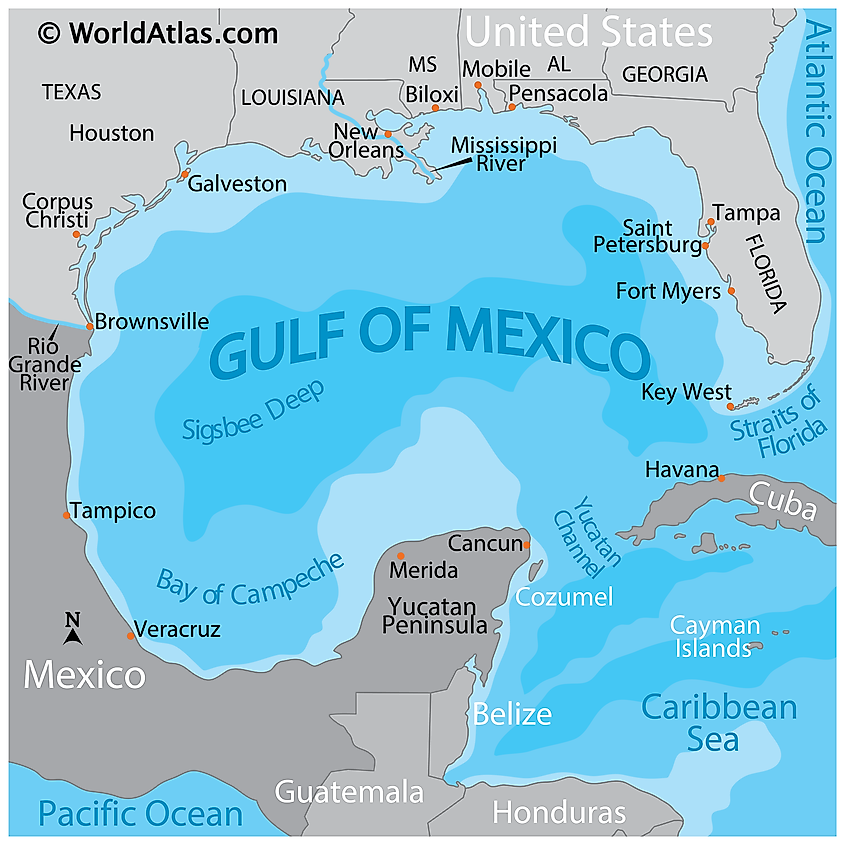Oil, the liquid black gold, contributes more than a third of the world's energy supply. No wonder every large corporation wants to get their hands on it. The plastic container we get while ordering food online, the bus that we take to our college and even the shampoo we use to wash out the dirt and pollution from our hair contain petroleum products. Shocking, but it is true. We use petroleum products in our everyday life but often forget the damage that it poses. It is one of the largest contributors to ecological damage, often due to human negligence.
In 2023 alone, there were ten oil spills around the world. And recovering from an oil spill is painfully long. It can take almost 15 years for the effect of a small spill to completely disappear from the ecosystem. By the time it disappears, the damage has already been done.
The Largest Marine Oil Spill in World History
According to the United States Energy Information Administration, The Gulf of Mexico provides the US with more than a fifth of the country's oil and gas needs. It is, in fact, a gold mine and the life's mission of every oil company in the world to set up an oil rig there and suck the earth dry.
Deepwater Horizon, owned by Transocean, the largest oil rig contractor in the world, was the most sophisticated and biggest oil rig in the early 2000s. In March 2008, when the opportunity to lease the rig came, BP seized the opportunity. If only they knew that two years later, on 20th April 2010, they would be responsible for causing the worst oil spill known to mankind. Causing destruction which the environment is still paying for.

Source:World Atlas
What went wrong
Here is how oil rigs work. A large rig drills into an oil well first and then the opening is closed with cement for another small rig to come and begin extraction. This is how BP was operating Deepwater Horizon as well. Halliburton, a corporation that was providing the skilled personnel to man the Deepwater Horizon, found that the cement meant to be used for the capping was highly unstable and could lead to leakages. They had also warned BP about a potential crisis. BP as BP always does, decided to ignore the warnings and go ahead with the plan. A decision that cost nature and humanity dearly.
On the night of the 20th, there were 129 people on Deepwater Horizon. 79 Transocean Employees, 7 BP employees and 40 Contract workers. At around 10 pm, a surge of natural gas blasted through a sealed concrete and filled the rig. Before anybody could do anything, a spark led to an explosion that engulfed the air with fire and smoke. 11 people lost their lives that day and over 90 were left severely injured. The fire went on for another 24+ hours before it sank Deepwater Horizon. This was just the beginning of the destruction. In the next 87 days, 60,000 barrels of oil were filling up the sea every day. The total discharge of oil is estimated to be 210 Million US gallons, which is close to 795 Million Litres. For reference, India is the third-largest consumer of oil today and we consume 4.5 Million Barrels of oil every day. Which is close to 715 Million litres. The oil that could power a country with the largest population in the world was now in the Gulf of Mexico threatening marine life. The Centre for Biological Diversity found that the spill likely harmed or killed about 82,000 birds of 102 species, about 6,165 sea turtles, as many as 25,900 marine mammals, and a vast number of fish.

Source: Wikipedia
A History of Negligence
BP, British Petroleum, is one of the wealthiest oil companies in the world. It is the fourth largest investor-owned oil company after Exxon Mobil, Shell and Total Energy. It is also a corporation with a bad history of gross negligence. Their strategies of cost-cutting have often come with a price to pay. But they weren't the only ones paying, it was always people and nature.
On 23rd March 2005, an incident similar to that of Deepwater Horizon, a BP Refinery Plant in Texas City exploded after a leak of hydrocarbon vapour ignited. The reason was the same, lack of proper safety measures and a senior management that paid no heed to warning signs. The explosion took the lives of 5 workers and injured 180 others. But BP never learned from their mistakes.
We also need to learn from our mistakes. Although we advocate for sustainable energy, it is not a viable option that we can entirely depend on. We need oil, no matter how much we try to deny it. But using it efficiently as individuals is up to us. And as history has proven to us, most catastrophes happen due to human and corporate negligence and forcing them to take accountability is something that we CAN collectively do.
https://www.statista.com/statistics/268553/number-of-oil-spills-by-oil-tankers-since-1970/
https://markleen.com/oil-spill-specialists/oil-spill-clean-up-techniques/
https://www.youtube.com/watch?v=NzrGZCJojUE
https://www.youtube.com/watch?v=VfZlaa3VHaw
Comments
Post a Comment